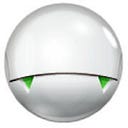词根词缀
reg, rect, rig:表示 king, rule, guide; straight 的意思,单词有:regicide(弑君),rectitude(公正),regime(政权、政体),regimen(养生法),regal(帝王的)
-ize, -ise:表示 to turn into or cause to be 的意思,The suffix -ize , -ise forms transitive verbs from adjectives (civilize ) and nouns (crystallize ). The oldest English verbs ending in -ize were loanwords from Greek (baptize , catechize ). -ise 是 British English,-ize 是 American English,单词有: chastise(惩罚),advertise(广告、通告、突出),anathematize(诅咒),galvanize(刺激、电镀)
per-:表示 through, completely; to destruction, ill effect 的意思(完全,彻底,毁坏,坏),单词有:peremptory(蛮横的:完全+拿走),perspicacious(有洞察力的,完全+明白),perennial(长久的、持续的、多年生植物),perfidious(背信弃义的;不忠的,坏的+相信),perforate(穿孔,贯穿),perjury(背信弃义;坏的+发誓),permeable(透过的,有渗透性的),percussion(打击乐器,完全+震动),perfunctory(敷衍的,马虎的;完全+例行公事,贬义化)
英语语法概念: Deverbal noun
Deverbal nouns are nouns that are derived from verbs or verb phrases, but that behave grammatically purely as nouns, not as verbs. They are distinct from verbal noun types such as gerunds and infinitives, which behave like verbs within their phrase (although that verb phrase is then used as a noun phrase within the larger sentence).
成为单词的人名:Eros
In Greek mythology, Eros is the Greek god of love. His Roman counterpart was Cupid (“desire”). Normally, he is described as one of the children of Aphrodite and Ares, and with most of his siblings, was a part of group, consisting of winged love gods. However, sometimes he is also described as one of the primordial gods, but then, he is most often identified with Phanes.
Words from Eros:
eros:[‘iərɔs] n.性爱,性欲,愿望
erotic:[ɪ’rɒtɪk] adj.色情的,性欲的,性爱的n.好色之徒
erotical:[i’rɔtikəl] adj. 性爱的;色情的n. 好色之徒
erotology:[,erə’tɒlədʒɪ] n.色情文学,色情艺术
eroticism:[ɪ’rɑtə,sɪzəm] n. 色情;性的兴奋,性欲亢进
eroticist:[i’rɔtisist] n.色鬼,好色之徒;色情文学作者
修辞概念:simile
A simile is a figure of speech that directly compares two things. Similes are a form of metaphor that explicitly use connecting words (such as like, as, so, than, or various verbs such as resemble), though these specific words are not always necessary. While similes are mainly used in forms of poetry that compare the inanimate and the living, there are also terms in which similes and are used for humorous purposes and comparison.
